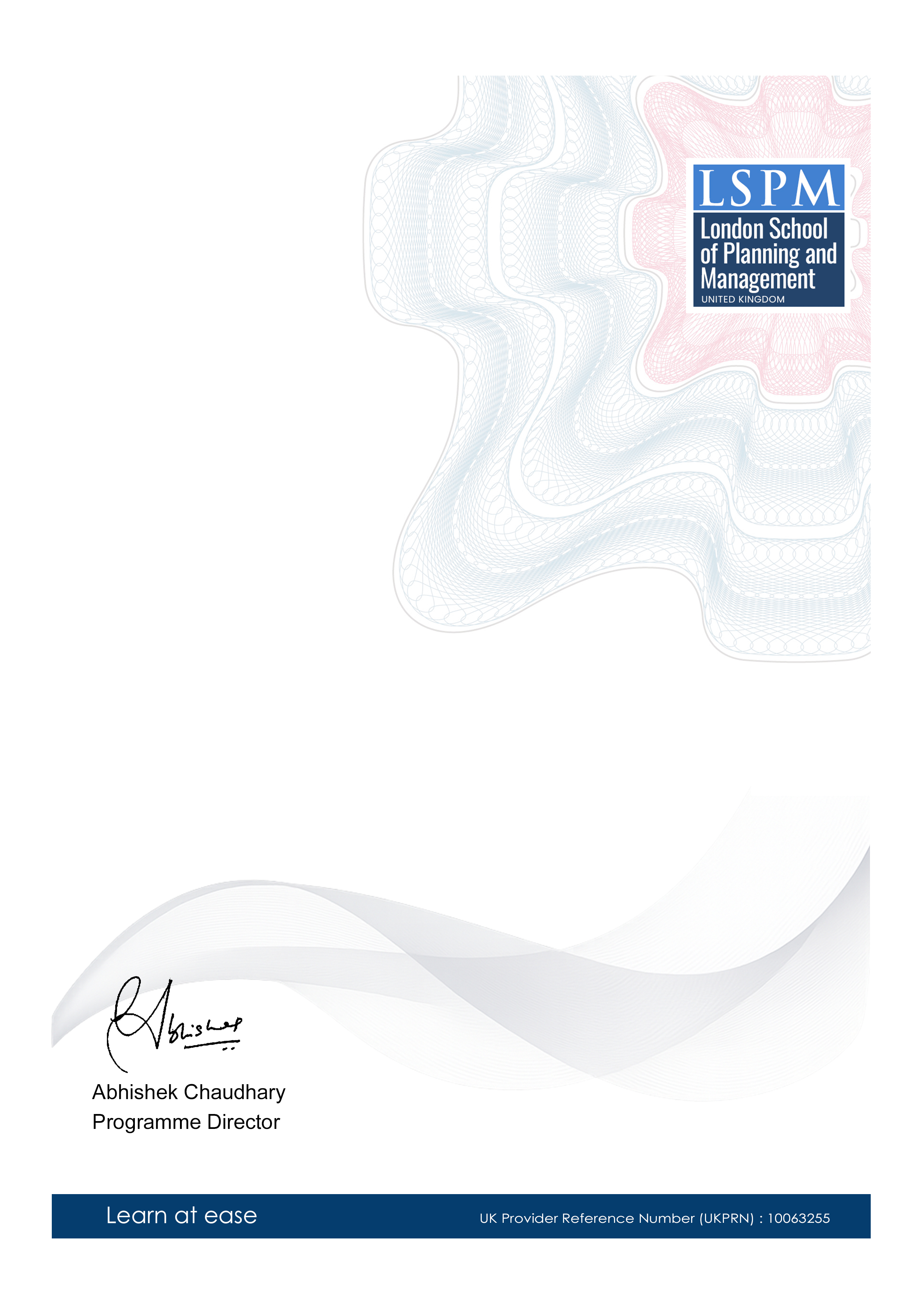Graduate Certificate in Emergency Preparedness for Faith-Based Organizations
-- viewing nowThe Graduate Certificate in Emergency Preparedness for Faith-Based Organizations is a crucial course that equips learners with the skills to prepare and respond to emergencies in faith-based communities. With increasing natural disasters and security threats, there is a growing demand for professionals who can ensure the safety and well-being of congregants and facilities.
2,315+
Students enrolled
GBP £ 149
GBP £ 215
Save 44% with our special offer
About this course
100% online
Learn from anywhere
Shareable certificate
Add to your LinkedIn profile
2 months to complete
at 2-3 hours a week
Start anytime
No waiting period
Course details
• Emergency Preparedness Fundamentals: Understanding the basics of emergency preparedness, including risk assessment, emergency planning, and response strategies.
• Legal and Ethical Considerations: Examining legal and ethical issues related to emergency preparedness in faith-based organizations, such as confidentiality, liability, and decision-making authority.
• Incident Management for Faith-Based Organizations: Exploring the National Incident Management System (NIMS) and how faith-based organizations can integrate it into their emergency plans.
• Psychological and Spiritual Care in Emergencies: Examining the unique psychological and spiritual needs of individuals and communities during emergencies, and how faith-based organizations can provide effective care and support.
• Communications and Advocacy: Developing effective communication strategies for faith-based organizations during emergencies, including working with the media, government agencies, and other stakeholders.
• Community Engagement and Partnerships: Building relationships and partnerships with other organizations, community groups, and government agencies to enhance emergency preparedness and response.
• Recovery and Rehabilitation: Understanding the long-term impacts of emergencies on individuals and communities, and how faith-based organizations can support recovery and rehabilitation efforts.
• Special Considerations for Vulnerable Populations: Addressing the unique needs of vulnerable populations, such as children, the elderly, people with disabilities, and those with limited English proficiency, in emergency preparedness planning.
Career path
Entry requirements
- Basic understanding of the subject matter
- Proficiency in English language
- Computer and internet access
- Basic computer skills
- Dedication to complete the course
No prior formal qualifications required. Course designed for accessibility.
Course status
This course provides practical knowledge and skills for professional development. It is:
- Not accredited by a recognized body
- Not regulated by an authorized institution
- Complementary to formal qualifications
You'll receive a certificate of completion upon successfully finishing the course.
Why people choose us for their career
Loading reviews...
Frequently Asked Questions
Course fee
- 3-4 hours per week
- Early certificate delivery
- Open enrollment - start anytime
- 2-3 hours per week
- Regular certificate delivery
- Open enrollment - start anytime
- Full course access
- Digital certificate
- Course materials
Get course information
Earn a career certificate

